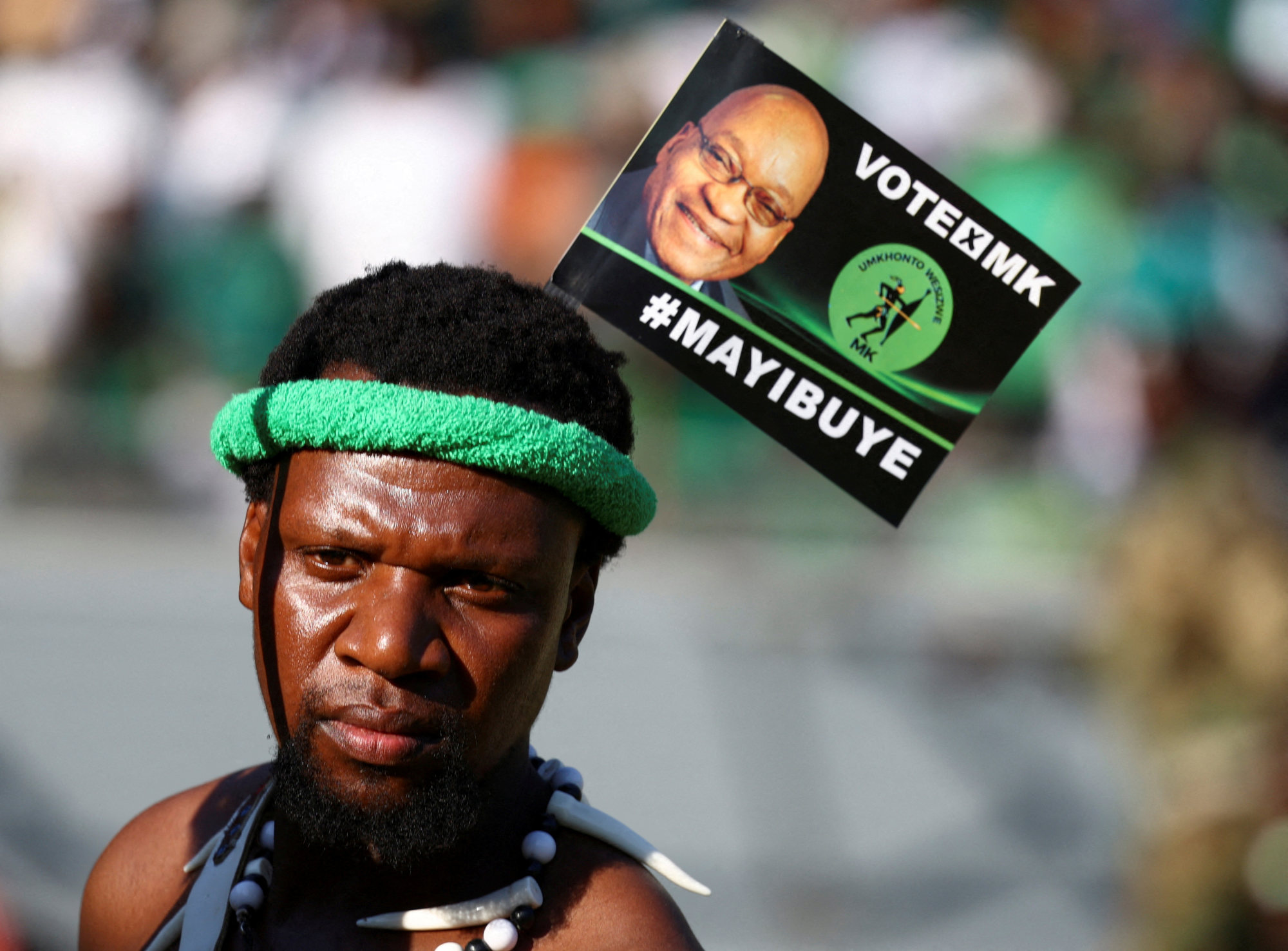South Africa’s highest court ruled on Monday that former President Jacob Zuma is not allowed to stand as a candidate for Parliament in a national election next week because of a previous criminal conviction, a decision that’s likely to increase political tensions ahead of a pivotal vote.
Zuma, who was forced to quit as president in 2018, has fallen out with the governing African National Congress (ANC) and has been campaigning for a new party called uMkhonto we Sizwe (MK) named after the ANC’s formed armed wing.
Opinion polls suggest the ANC’s majority is at risk after 30 years in power, and MK represents a threat to it, especially in Zuma’s home province of KwaZulu-Natal where he is popular.
The case before the constitutional court stems from a decision in March by South Africa’s electoral commission to disqualify Zuma on the basis that the constitution prohibits anyone given a prison sentence of 12 months or longer from holding a parliamentary seat.
In 2021, Zuma was sentenced to 15 months in jail for failing to appear at a corruption inquiry.
Mr. Zuma was convicted of an offence and sentenced to more than 12 months’ imprisonment, and is accordingly not eligible to be a member of, and not qualified to stand for election
In April, a court overturned the disqualification, saying the relevant section of the constitution applied only to people who had a chance to appeal against their sentences, which had not been Zuma’s case.
The electoral commission then challenged that decision in the constitutional court.
“It is declared that Mr. Zuma was convicted of an offence and sentenced to more than 12 months’ imprisonment, … and is accordingly not eligible to be a member of, and not qualified to stand for election to, the National Assembly,” the constitutional court said on Monday in its ruling.
His arrest in 2021 triggered riots that claimed 354 lives, and he was freed on medical parole after servicing less than two months of his 15-month sentence. While the courts ruled that his release was unlawful, he was granted clemency by President Cyril Ramaphosa in November last year.

Asked about the potential for violence in the wake of the constitutional court ruling during an interview with a local radio station, Ramaphosa said: “I’m not concerned about this instigating violence.”
“We have rule of law in South Africa that governs us. Once a constitutional court has decided, that is it and should there be any threat of violence our security forces are ready,” he said.
Zuma was South African president from 2009-2018 but resigned under a cloud of corruption allegations. He made a return to politics last year with a new party, and has been fiercely critical of the ruling African National Congress party he once led.
The election is expected to be the ruling African National Congress’s toughest challenge since it came to power 30 years ago, as it faces a voter backlash over its inability to revive anaemic economic growth, address one of the world’s highest unemployment rates, and curb rampant crime and corruption. The ANC’s national majority is under threat as the electorate switches its support to Zuma’s newly formed party and other rivals.
Reporting by Associated Press, Reuters, Bloomberg

